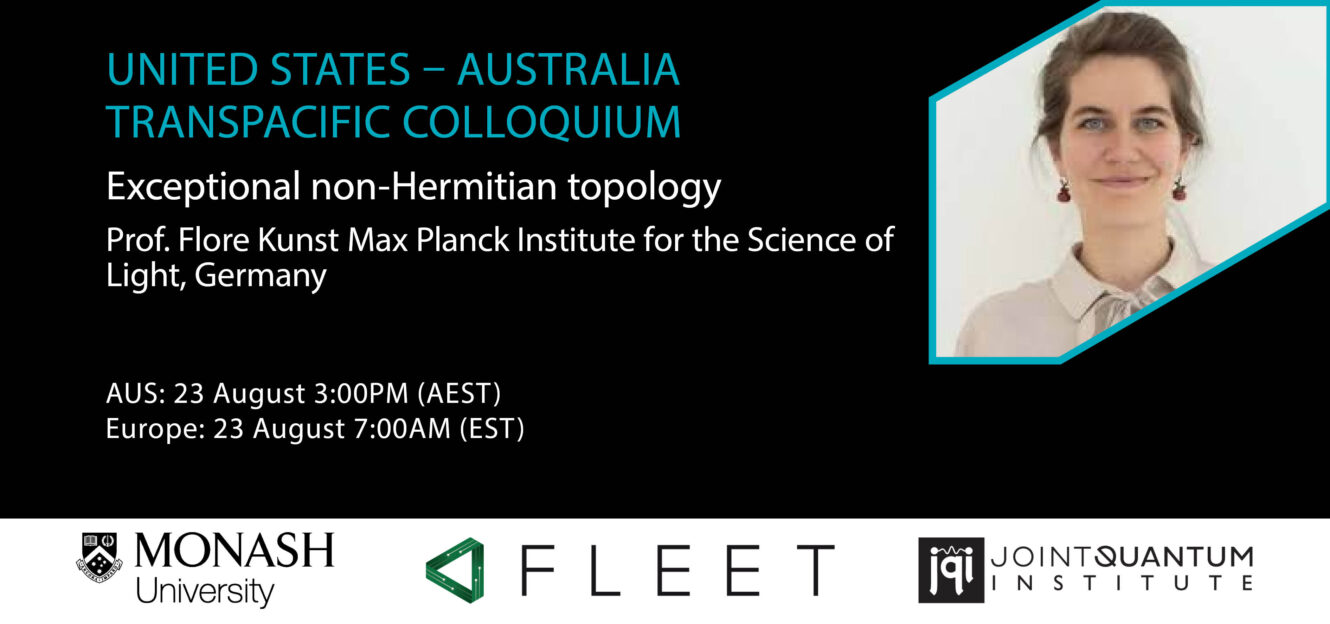-
23 Aug 2023
3:00 pm - 4:00 pm
Prof. Flore Kunst, Max Planck Institute for the Science of Light, Germany.
While topological phases of matter have predominantly been studied for isolated Hermitian systems, a recent shift has been made towards considering these phases in the context of non-Hermitian Hamiltonians. Non-Hermitian topological phenomena reveal an enrichment of the phenomenology of topological phases, and forms a rapidly growing new cross-disciplinary field. In particular, non-Hermiticity plays a central role in both classical and quantum systems. For example, in the classical realm, this comes about because of gain and loss processes in optics. In the quantum realm, non-Hermiticity describes the dynamics of open quantum systems as well as scattering, decay, broadening and resonances due to, for example, interactions and disorder.
Non-Hermitian Hamiltonians may feature many exotic properties that are radically different from their Hermitian counterparts, such as the generic appearance of exotic exceptional structures, a breakdown of the famed bulk-boundary correspondence, and the piling up of bulk states at the boundaries known as the non-Hermitian skin effect.
In this talk, I will provide an overview of the field focussing on fundamental aspects, experimental realizations and I will briefly touch upon applications.
Prof. Kunst is the Research Group Leader (Theory Division) at the Max Planck Institute for the Science of Light, Erlangen, Germany. The Kunst research group investigates topology in structures that dissipate or amplify. This is a new emerging field with a wide range of applications in photonics. Particularly, the group investigates phenomena that deviate and go beyond the physics of non-dissipative topological systems both in the single-particle and many-body context.

